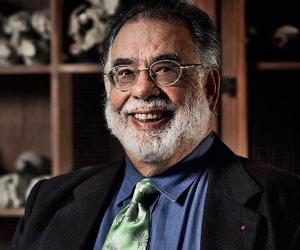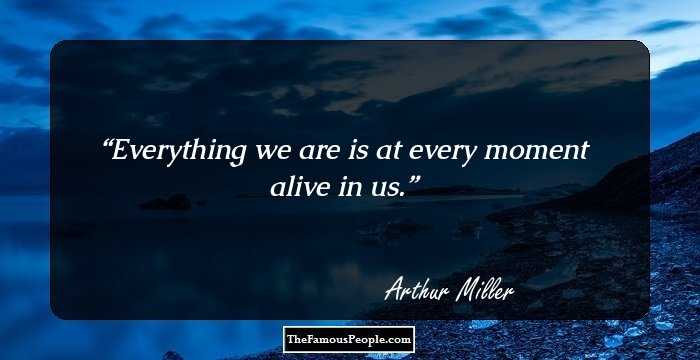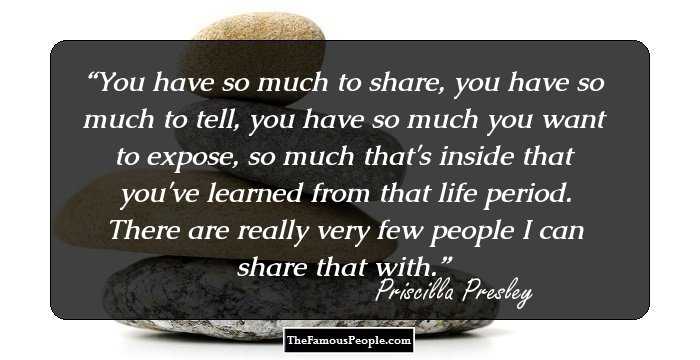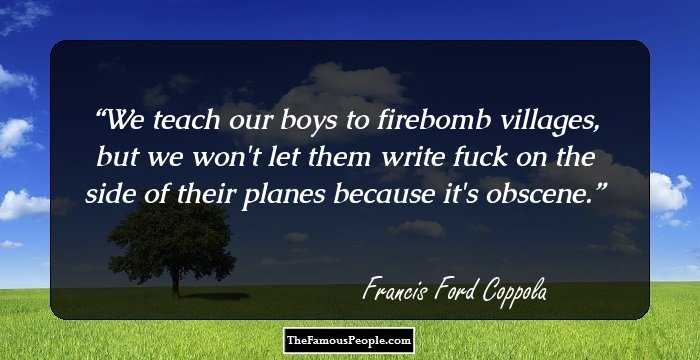
We teach our boys to firebomb villages, but we won't let them write fuck on the side of their planes because it's obscene.
I believe that filmmaking - as, probably, is everything - is a game you should play with all your cards, and all your dice, and whatever else you've got. So, each time I make a movie, I give it everything I have. I think everyone should, and I think everyone should do everything they do that way.

The essence of cinema is editing. It's the combination of what can be extraordinary images of people during emotional moments, or images in a general sense, put together in a kind of alchemy.
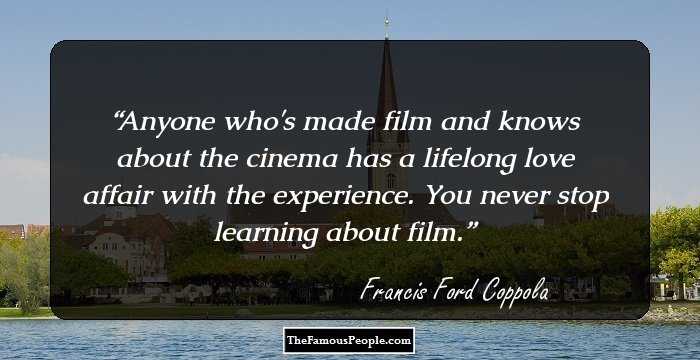
Anyone who's made film and knows about the cinema has a lifelong love affair with the experience. You never stop learning about film.
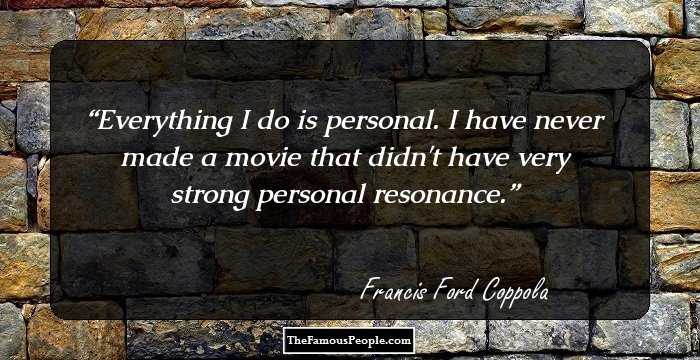
Everything I do is personal. I have never made a movie that didn't have very strong personal resonance.
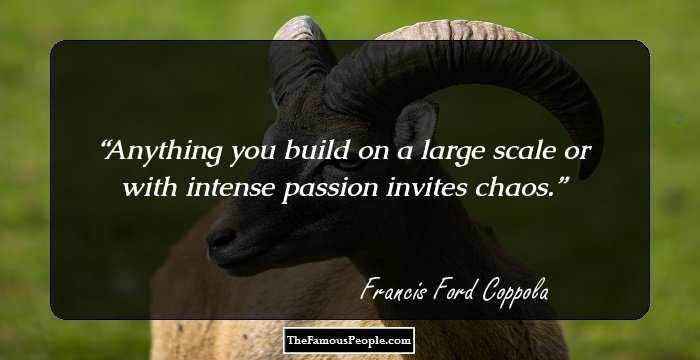
Anything you build on a large scale or with intense passion invites chaos.
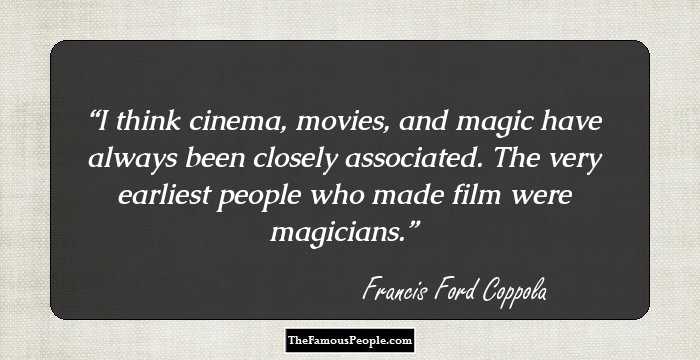
I think cinema, movies, and magic have always been closely associated. The very earliest people who made film were magicians.
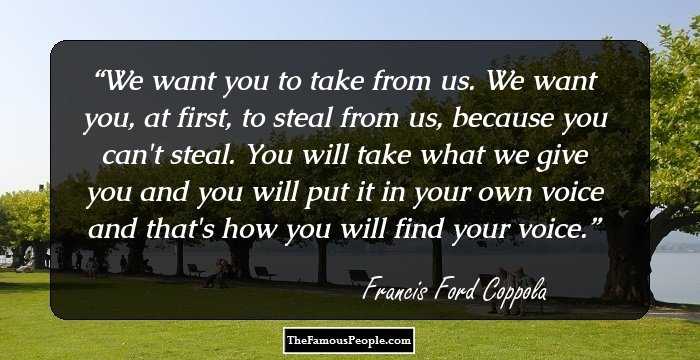
We want you to take from us. We want you, at first, to steal from us, because you can't steal. You will take what we give you and you will put it in your own voice and that's how you will find your voice.
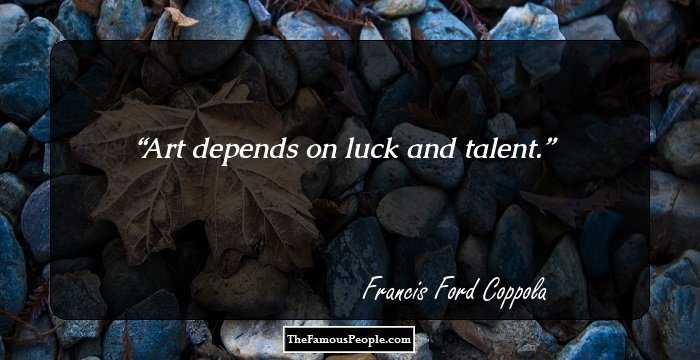
Art depends on luck and talent.
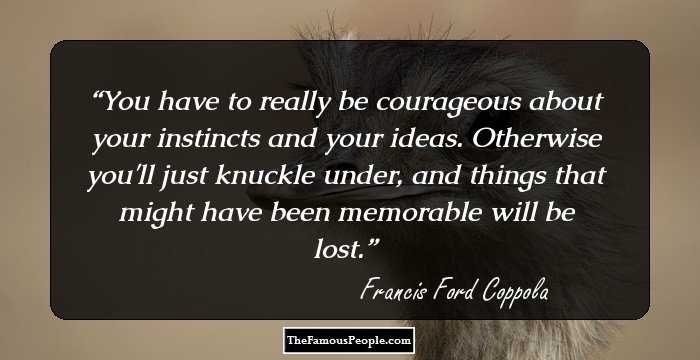
You have to really be courageous about your instincts and your ideas. Otherwise you'll just knuckle under, and things that might have been memorable will be lost.
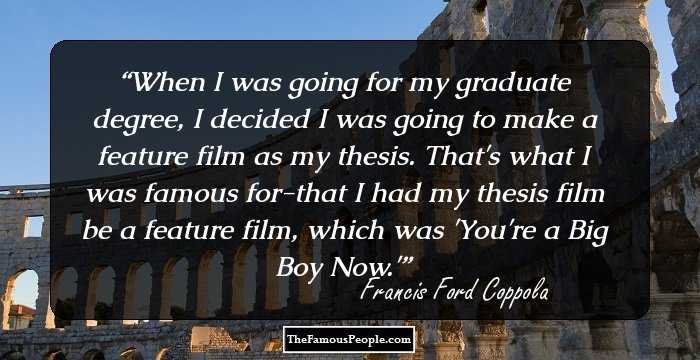
When I was going for my graduate degree, I decided I was going to make a feature film as my thesis. That's what I was famous for-that I had my thesis film be a feature film, which was 'You're a Big Boy Now.'
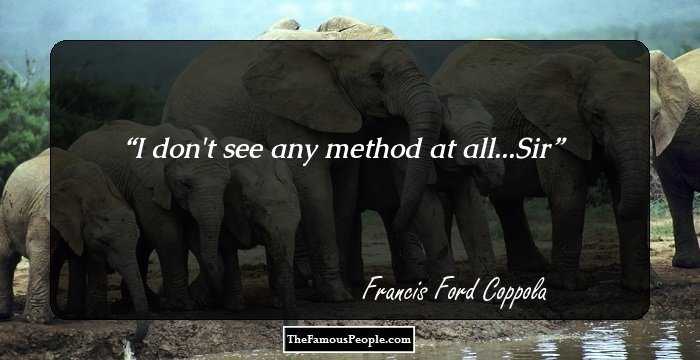
I don't see any method at all...Sir
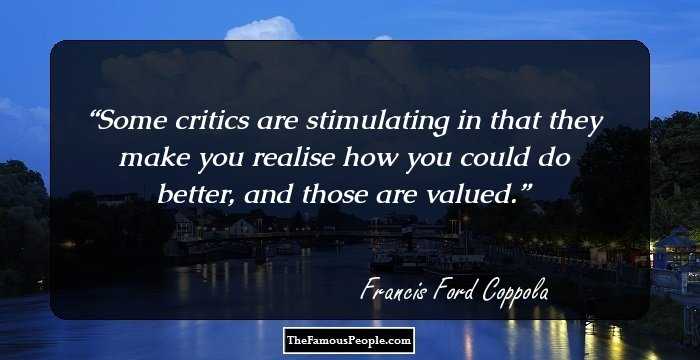
Some critics are stimulating in that they make you realise how you could do better, and those are valued.
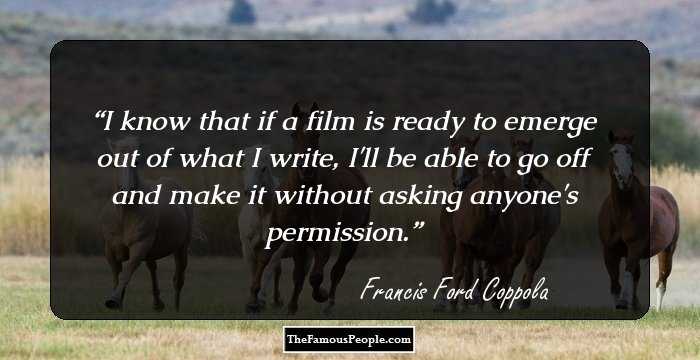
I know that if a film is ready to emerge out of what I write, I'll be able to go off and make it without asking anyone's permission.
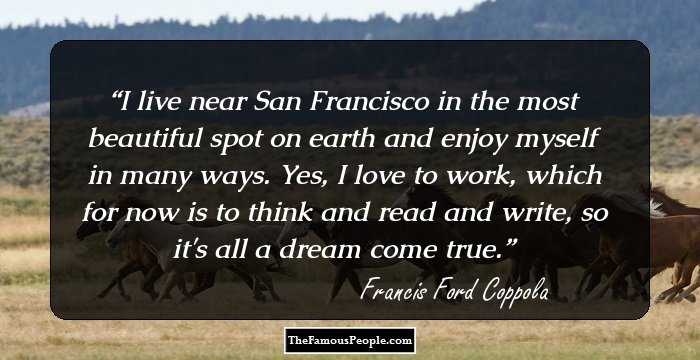
I live near San Francisco in the most beautiful spot on earth and enjoy myself in many ways. Yes, I love to work, which for now is to think and read and write, so it's all a dream come true.
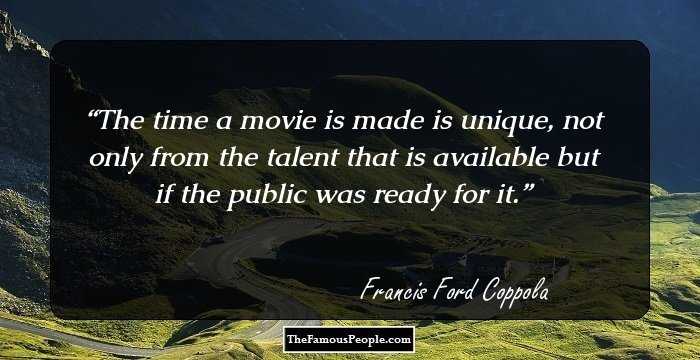
The time a movie is made is unique, not only from the talent that is available but if the public was ready for it.
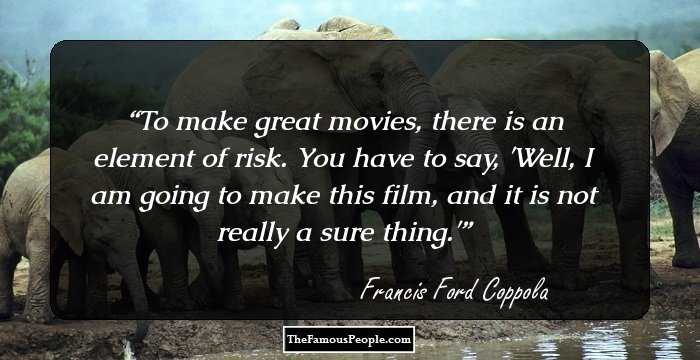
To make great movies, there is an element of risk. You have to say, 'Well, I am going to make this film, and it is not really a sure thing.'
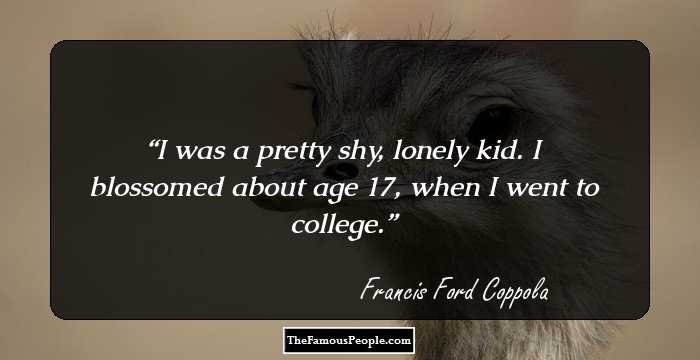
I was a pretty shy, lonely kid. I blossomed about age 17, when I went to college.
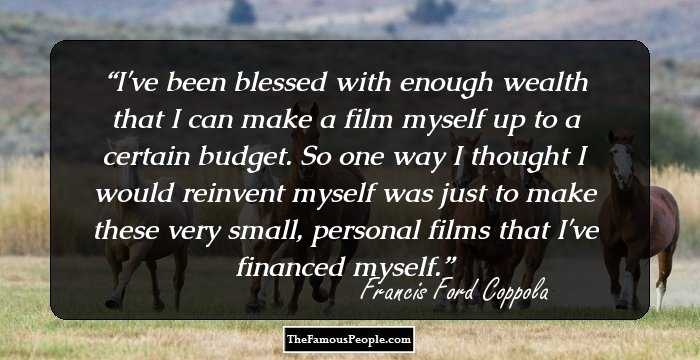
I've been blessed with enough wealth that I can make a film myself up to a certain budget. So one way I thought I would reinvent myself was just to make these very small, personal films that I've financed myself.
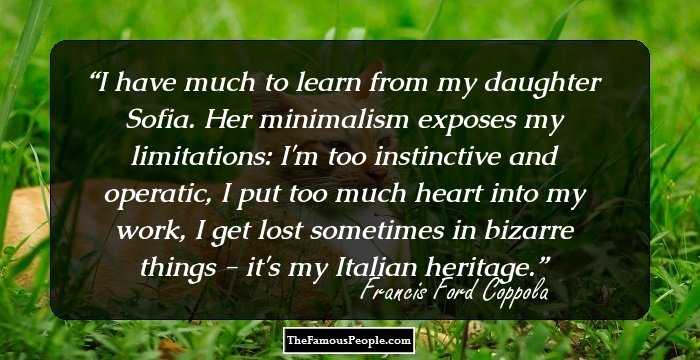
I have much to learn from my daughter Sofia. Her minimalism exposes my limitations: I'm too instinctive and operatic, I put too much heart into my work, I get lost sometimes in bizarre things - it's my Italian heritage.
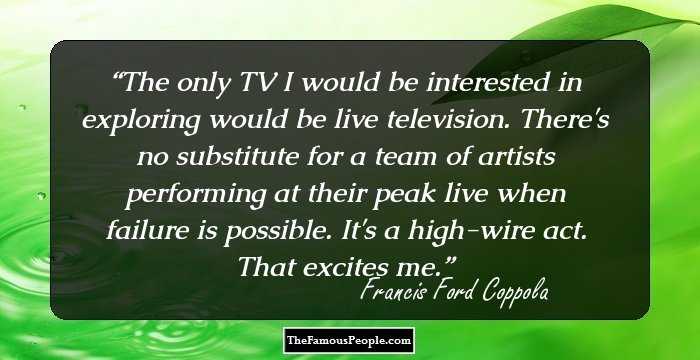
The only TV I would be interested in exploring would be live television. There's no substitute for a team of artists performing at their peak live when failure is possible. It's a high-wire act. That excites me.
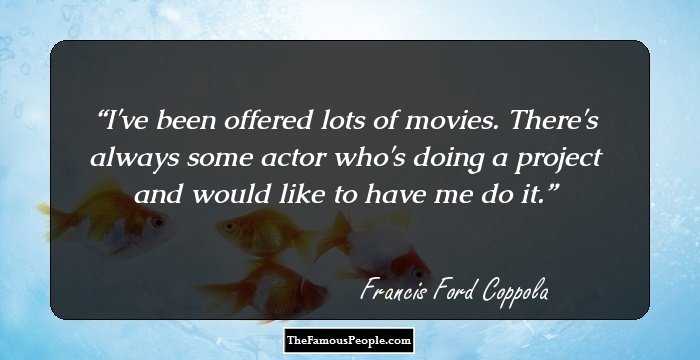
I've been offered lots of movies. There's always some actor who's doing a project and would like to have me do it.
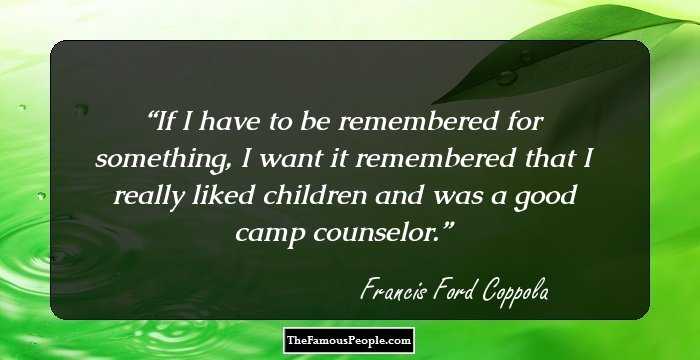
If I have to be remembered for something, I want it remembered that I really liked children and was a good camp counselor.
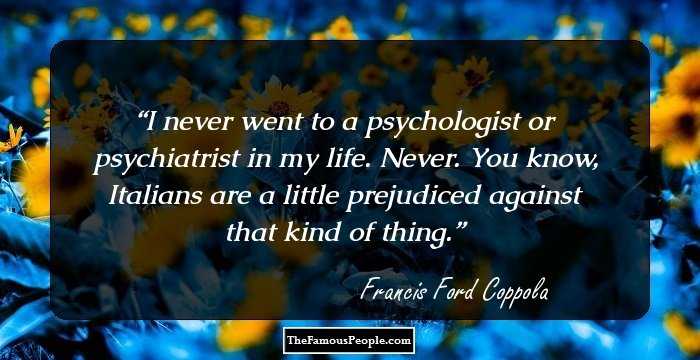
I never went to a psychologist or psychiatrist in my life. Never. You know, Italians are a little prejudiced against that kind of thing.
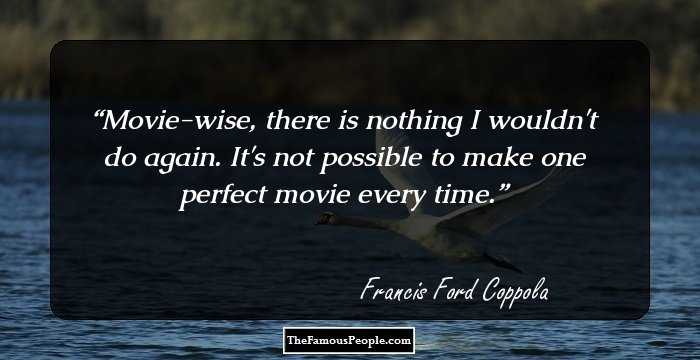
Movie-wise, there is nothing I wouldn't do again. It's not possible to make one perfect movie every time.
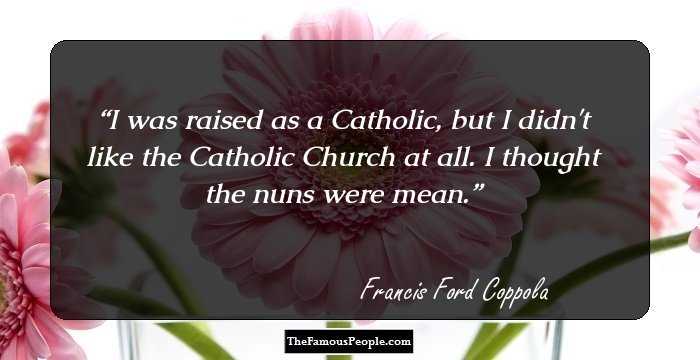
I was raised as a Catholic, but I didn't like the Catholic Church at all. I thought the nuns were mean.
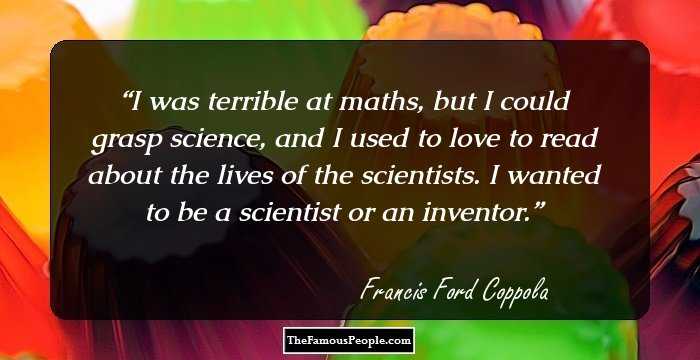
I was terrible at maths, but I could grasp science, and I used to love to read about the lives of the scientists. I wanted to be a scientist or an inventor.
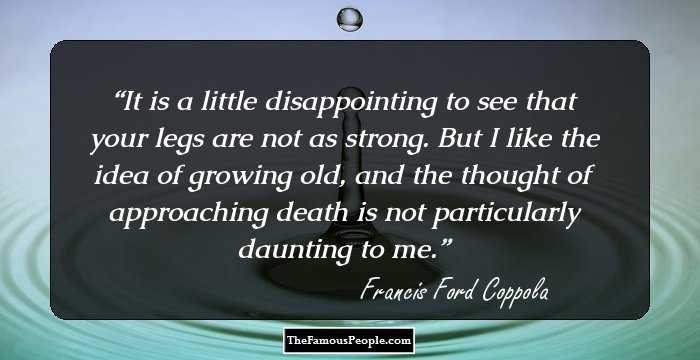
It is a little disappointing to see that your legs are not as strong. But I like the idea of growing old, and the thought of approaching death is not particularly daunting to me.
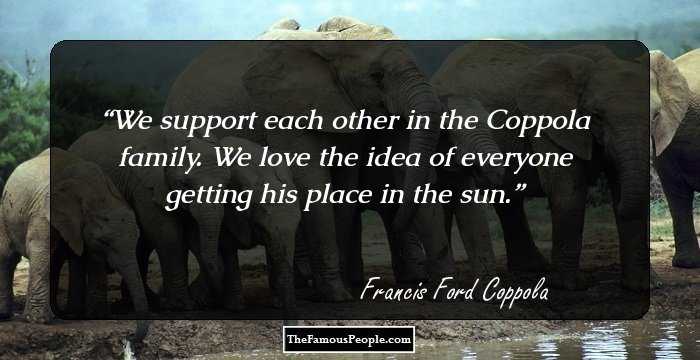
We support each other in the Coppola family. We love the idea of everyone getting his place in the sun.
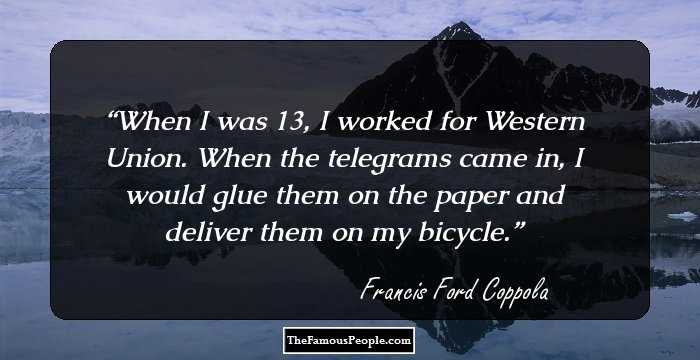
When I was 13, I worked for Western Union. When the telegrams came in, I would glue them on the paper and deliver them on my bicycle.

